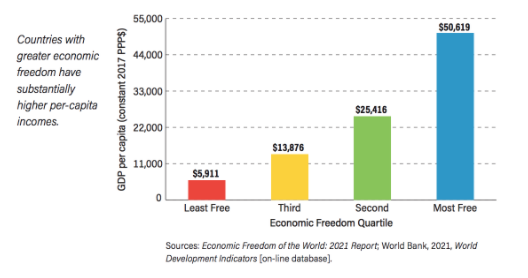Originally appeared on The Morning
By Dhananath Fernando
This is a story I’ve heard, the validity of which I am not too sure about. The story goes that post India’s independence in 1947 the then Indian Prime Minister Jawaharlal Nehru was visiting villages to celebrate the newly attained freedom. However, the Prime Minister was slapped by an old man who emerged from the crowd, stating that he had lost his three sons and wife to the war. “Is this the freedom you brought to India?’” he asked the Prime Minister.
The old gentleman’s question contained a great deal of emotions and obviously it went beyond a matter of political freedom. Income and wealth wise it was not sustainable and India as a country was very poor then, even more than it is today, and quality of life was deteriorating.
After thinking for a little while Prime Minister Nehru provided a thought-provoking answer: “Now a senior citizen of India like you can slap the Prime Minister. That’s the freedom we brought to Bharat.”
While Nehru’s answer was more relevant in the context of political freedom, the same story remains valid even in the context of economic freedom. Every citizen prefers to live in a society and an economy where they are free to make their own choices and have the freedom of choice when it comes to economic matters. As a result, countries that experience a higher degree of economic freedom have a higher GDP per capita.
Graph 1 – Per capita GDP of least free countries and most free countries
Graph 2 – Economic freedom and the income share of poorest 10%
Indeed, economic freedom and political freedom usually go hand in hand, especially in attracting investments, skills, and capital.
Currently, Sri Lanka is celebrating its 74th Independence anniversary. We must ask ourselves, how economically free are we, really?
According to the Economic Freedom of the World Index in 2019 Sri Lanka ranked 92nd out of 165 countries and in most of the indicators our performance has been constantly poor.
Economic Freedom of the World Index evaluates countries on five main parameters. Our performance is extremely poor in International Trade. Being an Island located in one of the main maritime routes, we have been ranked 146 out of 165 countries which really reflects our constant policy flaws over the years. Our inward looking anti-trade bias policies have brought Sri Lanka to where it is today.
Our ranking is equally bad in Regulation. Our score is 6.9 out of 10 and our rank is 110. Sri Lanka has too many regulations for micro, small, and medium enterprises and a fairly large licensing system. In fact, in the inaugural 72nd speech on Independence Day, the President pledged to remove unnecessary regulation. He appointed a deregulation commission headed by Lalith Weerathunga and Krishan Balendran, and we are awaiting the implementation of the recommendations.
Soundness of Money is another important parameter evaluated by the Economic Freedom of the World Index. This considers the standard deviation of inflation and how strong the currency will be. So, the property in cash form will not be diluted over sudden currency depreciation. Sri Lanka ranks 103 with a score of 8.2 on this measure. The above numbers are from 2019 when we had single digit inflation. Now our year-on-year (YoY) headline inflation is 14% and food inflation is 25%. Therefore, on a sound money front our ranking obviously cannot be performing well.
In the pillar of Legal System and Property Rights our ranking is 85th out of 165 countries with a score of 5.1. This is an area we need urgent attention, and some reforms such as digitising our judiciary system is commendable. However, we have a lot to improve, especially regarding the time taken to resolve a case. As the Minister of Justice once said, an average criminal case takes about 10 years and a land case takes more than 20 years, which is a serious bottleneck in our investment system. Investors impart extra attention in doing their due diligence on matters of the judiciary system, as rule of law and independence of the judiciary are one of the fundamentals of democracy.
On the pillar of Size of the Government as per 2019 data we were doing reasonably well. We ranked 17th out of 165 countries with a score of 8.28. However, our scores seem to be skewed due to low taxes and not actually because the size of our government is limited. We have 1.5 million State workers and in most of the industries State Owned Enterprises have a fairly large footprint with government intervention.
Ultimately, after celebrating independence for 74 years, our economic freedom is deteriorating overall. Most Sri Lankans apply for visas and make attempts to get permanent residency in countries that are economically free. Hong Kong, Singapore, New Zealand, Switzerland, Australia, the US, and Denmark are the countries at the top of the list. Rather than blaming Sri Lankans who plan to migrate permanently, we should focus on changing our policies to become a country with more economic freedom, and ensure that the same Sri Lankans who are looking to leave as well as others around the world will find Sri Lanka an attractive place to live and work.
As Jawaharlal Nehru responded to the old gentleman on freedom in 1947, if we start our reforms and bring economic freedom to Sri Lanka, our leaders too can tell our youth and boast of how they made Sri lanka an economically attractive country.
Reference:
The opinions expressed are the author’s own views. They may not necessarily reflect the views of the Advocata Institute or anyone affiliated with the institute.



